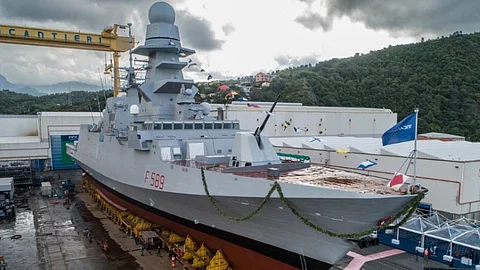Italy mulls stretching defence budget as it struggles to meet NATO targets
Italy is considering including police and coastguard services in its defence budget so it can point to a quick increase in security spending as its struggles to meet US-led NATO targets, two government sources said.
The tactic - which one former Italian envoy to NATO said was unusual but would not necessarily break the alliance's rules - underlined the challenge states are facing as they respond to pressure from US President Donald Trump to up contributions.
Highly indebted Italy's projected defence budget for 2024 was 1.49 per cent of gross domestic product, NATO figures show, below the military alliance's current two per cent target which Trump wants raised to five per cent.
Two government sources, who asked not to be named, said Italian Prime Minister Giorgia Meloni may include the coastguard and some of the national police forces in the defence budget to get closer to the two per cent target without fresh investment.
A third government source said any measure would need cabinet approval but it was not immediately clear when the plan would be examined.
NATO did not immediately respond to a request for comment. The Italian defence ministry said it had no information about the plan.
A factsheet on NATO's website says coastguards and police can be included in defence spending but only "in proportion to the forces that are trained in military tactics, are equipped as a military force, can operate under direct military authority in deployed operations".
Stefano Stefanini, a former Italian ambassador to NATO, said he had not heard of other countries making the same move, but thought it could get the go-ahead.
"I don't think NATO would create problems with such an initiative if it is well constructed and well presented," he said.
"There is a logic to it given the prevailing concern in the countries over illegal immigration, which also leads to a security implication for the coastguard."
The European Commission has proposed to let all 27 EU governments increase defence spending by 1.5 per cent of GDP each year for four years without triggering any disciplinary steps, as the bloc weighs options to counter potential threats from Russia.
But a public debt seen rising to almost 138 per cent of GDP from 135.3 per cent in 2024 leaves Rome with limited leeway, and pushed Economy Minister Giancarlo Giorgetti to propose to EU members a common guarantee scheme to finance such spending while limiting the impact on national budgets.
Defence is a sensitive issue in Italy, where a recent poll in daily Corriere della Sera showed nearly 40 per cent are against the European Commission initiative to rearm the bloc, compared with less than 30 per cent in favour.
(Editing by Andrew Heavens)


